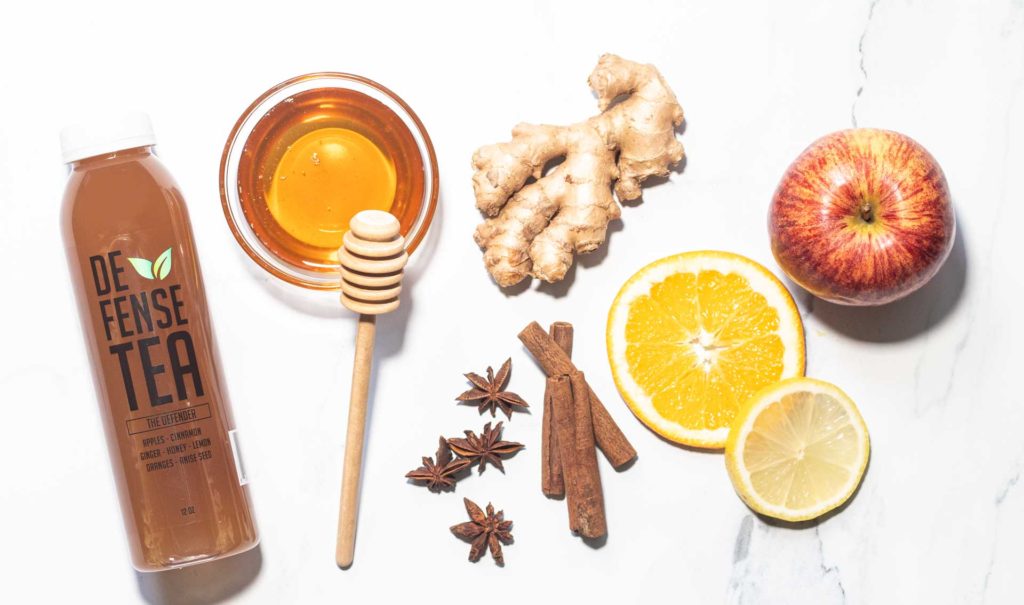
Can Ginger and Turmeric Help Fight Pain and Sickness?
Ginger and turmeric are two of the most extensively studied ingredients in herbal medicine.
Interestingly, both have been used for centuries to treat a variety of ailments, ranging from migraines to chronic inflammation and fatigue.
Both have also been used to help relieve pain, decrease nausea, and enhance immune function to help protect against illness and infection (1Trusted Source, 2Trusted Source).
This article looks at the benefits and side effects of ginger and turmeric, and whether they can help fight pain and sickness.
What are ginger and turmeric?
Ginger and turmeric are two types of flowering plants that are widely used in natural medicine.
Ginger, or Zingiber officinale, originated in Southeast Asia and has long been used as a natural remedy for various health conditions.
Its medicinal properties are mostly due to the presence of phenolic compounds, including gingerol, a chemical thought to possess potent anti-inflammatory and antioxidant properties (3Trusted Source).
Turmeric, also known as Curcuma longa, belongs to the same family of plants and is often used as a spice in Indian cooking.
It contains the chemical compound curcumin, which has been shown to aid in treating and preventing several chronic conditions (4Trusted Source).
Both ginger and turmeric can be consumed fresh, dried, or ground, and added to a variety of dishes. They’re also available in supplement form.
Have properties that help with pain and sickness
Though evidence is limited on the effects of ginger and turmeric when used together, studies show that both can help reduce pain and sickness.
Reduce inflammation
Chronic inflammation is thought to play a central role in the development of conditions like heart disease, cancer, and diabetes.
It can also worsen symptoms associated with autoimmune conditions, such as rheumatoid arthritis and inflammatory bowel disease (5Trusted Source).
Ginger and turmeric have powerful anti-inflammatory properties, which could help decrease pain and protect against disease.
One study in 120 people with osteoarthritis found that taking 1 gram of ginger extract per day for 3 months effectively reduced inflammation and decreased levels of nitric oxide, a molecule that plays a key role in the inflammatory process (6Trusted Source).
Similarly, a review of 9 studies showed that taking 1–3 grams of ginger per day for 6–12 weeks decreased levels of C-reactive protein (CRP), an inflammatory marker (7Trusted Source).
Meanwhile, test-tube and human studies indicate that turmeric extract can decrease several markers of inflammation, with some research noting that it may be as effective as anti-inflammatory medications like ibuprofen and aspirin (8Trusted Source, 9Trusted Source, 10Trusted Source).
One review of 15 studies also observed that supplementing with turmeric could reduce levels of CRP, interleukin-6 (IL-6), and malondialdehyde (MDA), all of which are used to measure inflammation in the body (11Trusted Source).
Relieve pain
Both ginger and turmeric have been studied for their ability to provide relief from chronic pain.
Studies show that curcumin, the active ingredient in turmeric, is especially effective at decreasing pain caused by arthritis (12Trusted Source, 13Trusted Source).
In fact, a review of 8 studies found that taking 1,000 mg of curcumin was as effective at reducing joint pain as certain pain medications in those with arthritis (14Trusted Source).
Another small study in 40 people with osteoarthritis showed that taking 1,500 mg of curcumin daily significantly reduced pain and improved physical function, compared with a placebo (15Trusted Source).
Ginger has also been shown to decrease chronic pain associated with arthritis, along with several other conditions (16Trusted Source).
For example, one 5-day study in 120 women noted that taking 500 mg of ginger root powder 3 times daily reduced the intensity and duration of menstrual pain (17Trusted Source).
Another study in 74 people found that taking 2 grams of ginger for 11 days significantly reduced muscle pain caused by exercise (18Trusted Source).
Support immune function
Many people take turmeric and ginger at the first sign of sickness, hoping to enhance immune function and sidestep cold or flu symptoms.
Some research shows that ginger, in particular, may possess powerful immune-boosting properties.
One test-tube study indicated that fresh ginger was effective against human respiratory syncytial virus (HRSV), which can cause respiratory tract infections in infants, children, and adults (19Trusted Source).
Another test-tube study found that ginger extract blocked the growth of several strains of respiratory tract pathogens (20Trusted Source).
A mouse study also noted that taking ginger extract blocked the activation of several pro-inflammatory immune cells and decreased symptoms of seasonal allergies, such as sneezing (21Trusted Source).
Similarly, animal and test-tube studies have shown that curcumin possesses anti-viral properties and can help reduce the severity of influenza A virus (22Trusted Source, 23Trusted Source, 24Trusted Source).
Both turmeric and ginger can also decrease levels of inflammation, which can help improve immune function (25Trusted Source, 26Trusted Source).
However, most research is limited to test-tube and animal studies using concentrated doses of turmeric or ginger.
More research is needed to determine how each can affect human immune health when consumed in normal food amounts.
Decrease nausea
Several studies have observed that ginger could be an effective natural remedy to soothe the stomach and help reduce nausea.
One study in 170 women found that taking 1 gram of ginger powder daily for 1 week was as effective at reducing pregnancy-related nausea as a common anti-nausea medication but with far fewer side effects (27Trusted Source).
A review of five studies also showed that taking at least 1 gram of ginger per day could help significantly reduce post-operative nausea and vomiting (28Trusted Source).
Other research indicates that ginger can decrease nausea caused by motion sickness, chemotherapy, and certain gastrointestinal disorders (29Trusted Source, 30Trusted Source, 31Trusted Source).
Though more research is needed to evaluate the effects of turmeric on nausea, some studies have found that it may protect against digestive issues caused by chemotherapy, which could help reduce symptoms like nausea, vomiting, and diarrhea (32Trusted Source, 33Trusted Source).


